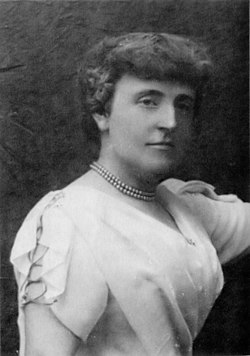Frances Hodgson Burnett Quote
So her heart was more drawn to him than before. When she was sent out at night she used sometimes to feel quite glad, because there was always a chance that the curtains of the house next door might not yet be closed and she could look into the warm room and see her adopted friend. When no one was about she used sometimes to stop, and, holding to the iron railings, wish him good night as if he could hear her.Perhaps you can feel if you can’t hear, was her fancy. Perhaps kind thoughts reach people somehow, even through windows and doors and walls. Perhaps you feel a little warm and comforted, and don’t know why, when I am standing here in the cold and hoping you will get well and happy again. I am so sorry for you, she would whisper in an intense little voice. I wish you had a ‘Little Missus’ who could pet you as I used to pet papa when he had a headache. I should like to be your ‘Little Missus’ myself, poor dear! Good night good night. God bless you!
So her heart was more drawn to him than before. When she was sent out at night she used sometimes to feel quite glad, because there was always a chance that the curtains of the house next door might not yet be closed and she could look into the warm room and see her adopted friend. When no one was about she used sometimes to stop, and, holding to the iron railings, wish him good night as if he could hear her.Perhaps you can feel if you can’t hear, was her fancy. Perhaps kind thoughts reach people somehow, even through windows and doors and walls. Perhaps you feel a little warm and comforted, and don’t know why, when I am standing here in the cold and hoping you will get well and happy again. I am so sorry for you, she would whisper in an intense little voice. I wish you had a ‘Little Missus’ who could pet you as I used to pet papa when he had a headache. I should like to be your ‘Little Missus’ myself, poor dear! Good night good night. God bless you!
Related Quotes
About Frances Hodgson Burnett
Frances Eliza Hodgson was born in Cheetham, Manchester, England. After her father died in 1853, when Frances was 4 years old, the family fell on straitened circumstances and in 1865 emigrated to the United States, settling in New Market, Tennessee. Frances began her writing career there at age 19 to help earn money for the family, publishing stories in magazines. In 1870, her mother died. In Knoxville, Tennessee, in 1873 she married Swan Burnett, who became a medical doctor. Their first son Lionel was born a year later. The Burnetts lived for two years in Paris, where their second son Vivian was born, before returning to the United States to live in Washington, D.C. Burnett then began to write novels, the first of which (That Lass o' Lowrie's), was published to good reviews. Little Lord Fauntleroy was published in 1886 and made her a popular writer of children's fiction, although her romantic adult novels written in the 1890s were also popular. She wrote and helped to produce stage versions of Little Lord Fauntleroy and A Little Princess.
Beginning in the 1880s, Burnett began to travel to England frequently and in the 1890s bought a home there, where she wrote The Secret Garden. Her elder son, Lionel, died of tuberculosis in 1890, which caused a relapse of the depression she had struggled with for much of her life. She divorced Swan Burnett in 1898, married Stephen Townsend in 1900, and divorced him in 1902. A few years later she settled in Nassau County, New York, where she died in 1924 and is buried in Roslyn Cemetery.
In 1936, a memorial sculpture by Bessie Potter Vonnoh was erected in her honor in Central Park's Conservatory Garden. The statue depicts her two famous Secret Garden characters, Mary and Dickon.
